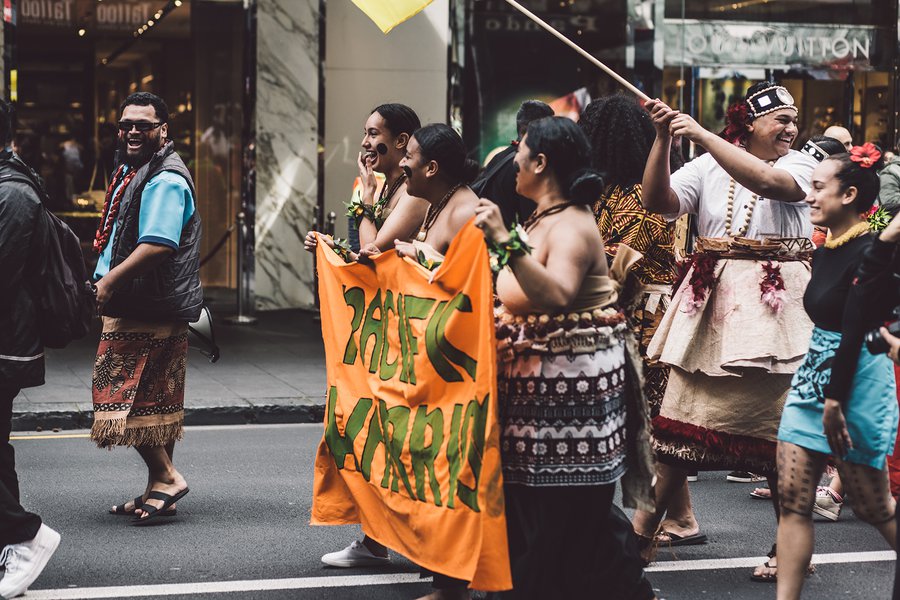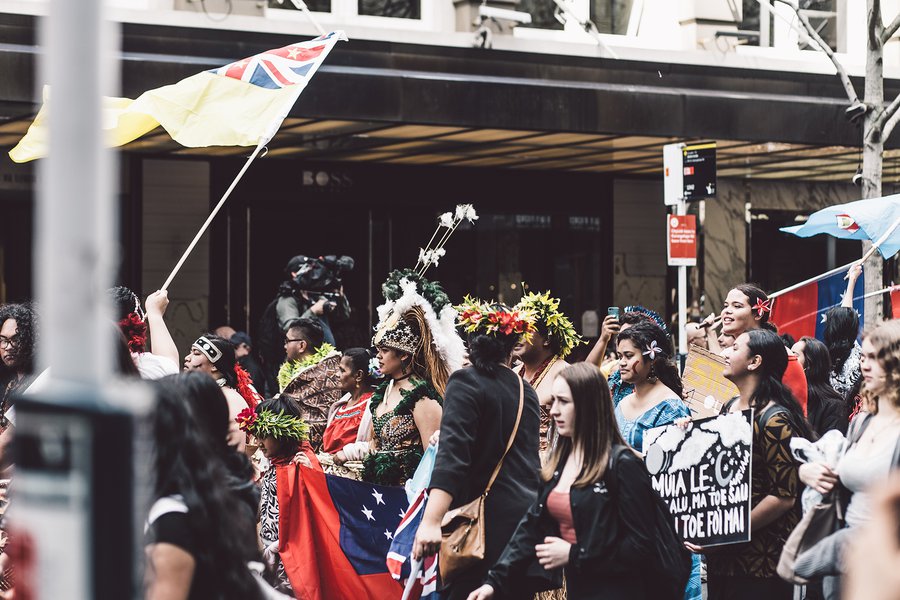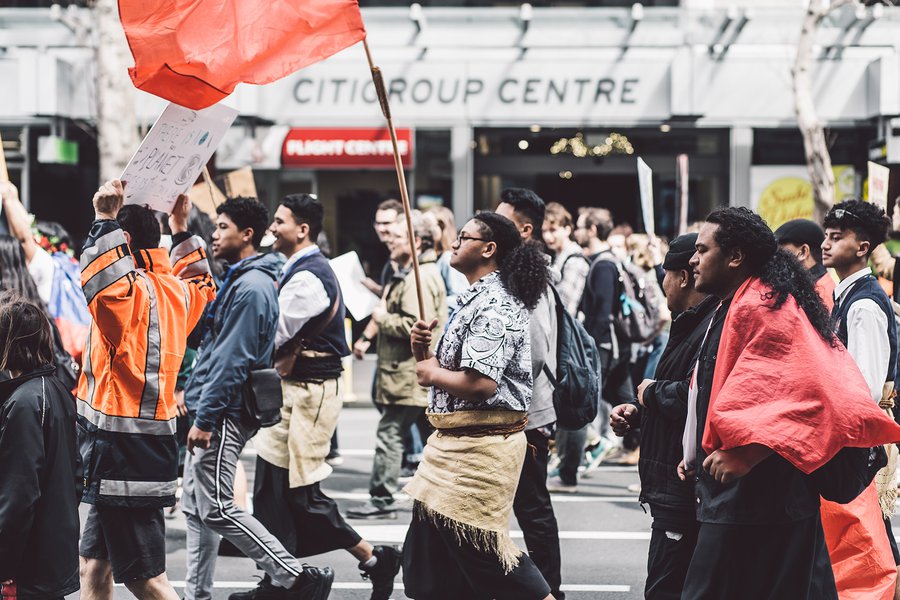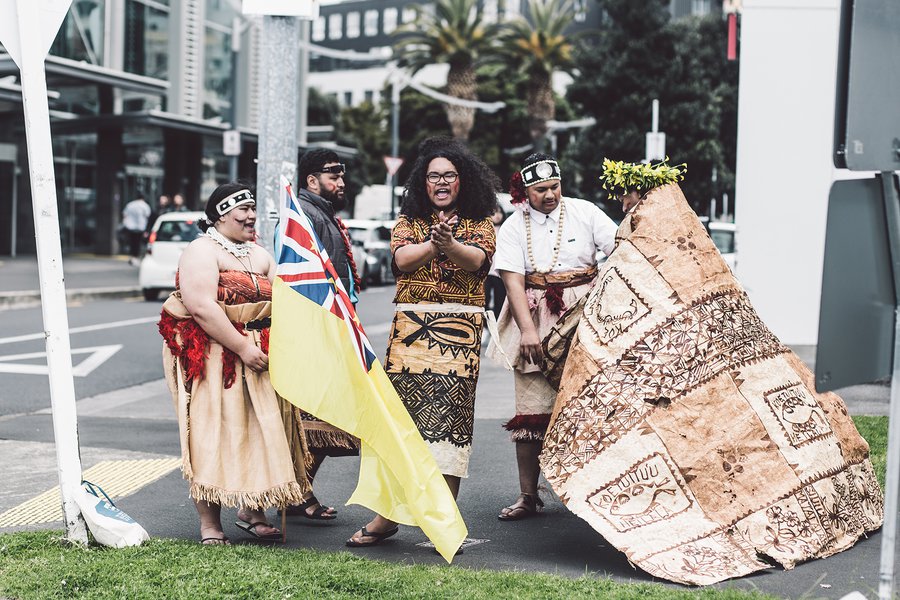A couple of months ago in September 2019, over 7 million people took to the streets globally, responding to the call from Fridays for Future and School Strike for Climate, uniting across time zones with a unified message — demanding action on our escalating ecological emergency. In New Zealand, where we live, over 170 000 people participated in this climate strike. This figure represents 3.5% of the population. It was the biggest strike held in the country since 2004 and the hikoi protest against the discriminatory Foreshore and Seabed Act. New Zealand is home to a broad Pacific islands community, and some population like Samoa living in Auckland outnumbers the number of people living on the islands. In the September climate strike crowd, the Pacific representation was strong. Figures showed 20% of the Tokelau atolls population marched on that day. We were in Auckland, and we witnessed how the concern of Pacific islands population was real. And this concern is justified.
How Pacific islands are facing climate change threat?
Despite Pacific islands contribution to greenhouse gases being small, they are disproportionately suffering global warming consequences. Due to rising sea levels and storms escalating to a rate never seen before, extreme flooding risks are permanent. Nations like Tuvalu, Kiribati, Marshall Islands, alongside Tokelau, atolls from Fiji, Solomon Islands and Vanuatu are the most affected. These populations are facing mulling mass relocations. Nearly all these countries lack safe territory options for internal migrations, as well as international migration access.
Yet island nations are working hard, applying solutions inspired by nature to improve resilience to climate change and protect their resources and culture. Restoring mangrove ecosystems is what villagers decided to do in Fiji, this tropical coastal vegetation system working like a shield against storms. Mangroves trap sediments through their deep roots, withstanding sea levels and reducing coastal erosion, besides absorbing carbon and sheltering marine wildlife. Thanks to an audacious shift to renewable energy, Tuvalu islands became the first solar nation in the world, most sustainable power generation, free from CO2; hence it is feasible to reduce greenhouse gases drastically implementing strong policies. In Kiribati, individuals are adapting to rising sea, building seawalls to refrain water damaging their yields, implementing hydroponic systems to keep crops out of salty water. However, most of the Pacific islands remain developing states, constantly hampered by limited finance, making it difficult to source capital to protect their population. In this instance, solutions won’t come without the support of other countries.
Undoubtedly, actions reducing climate change effects are the best chance for Pacific islands nations survival. The IPCC report from last year, despite being extremely concerning also states that there is still five to ten years left to stop the very worst coming to fruition. We believe these solutions are diverse, from individuals to political levels, we must collectively take actions.
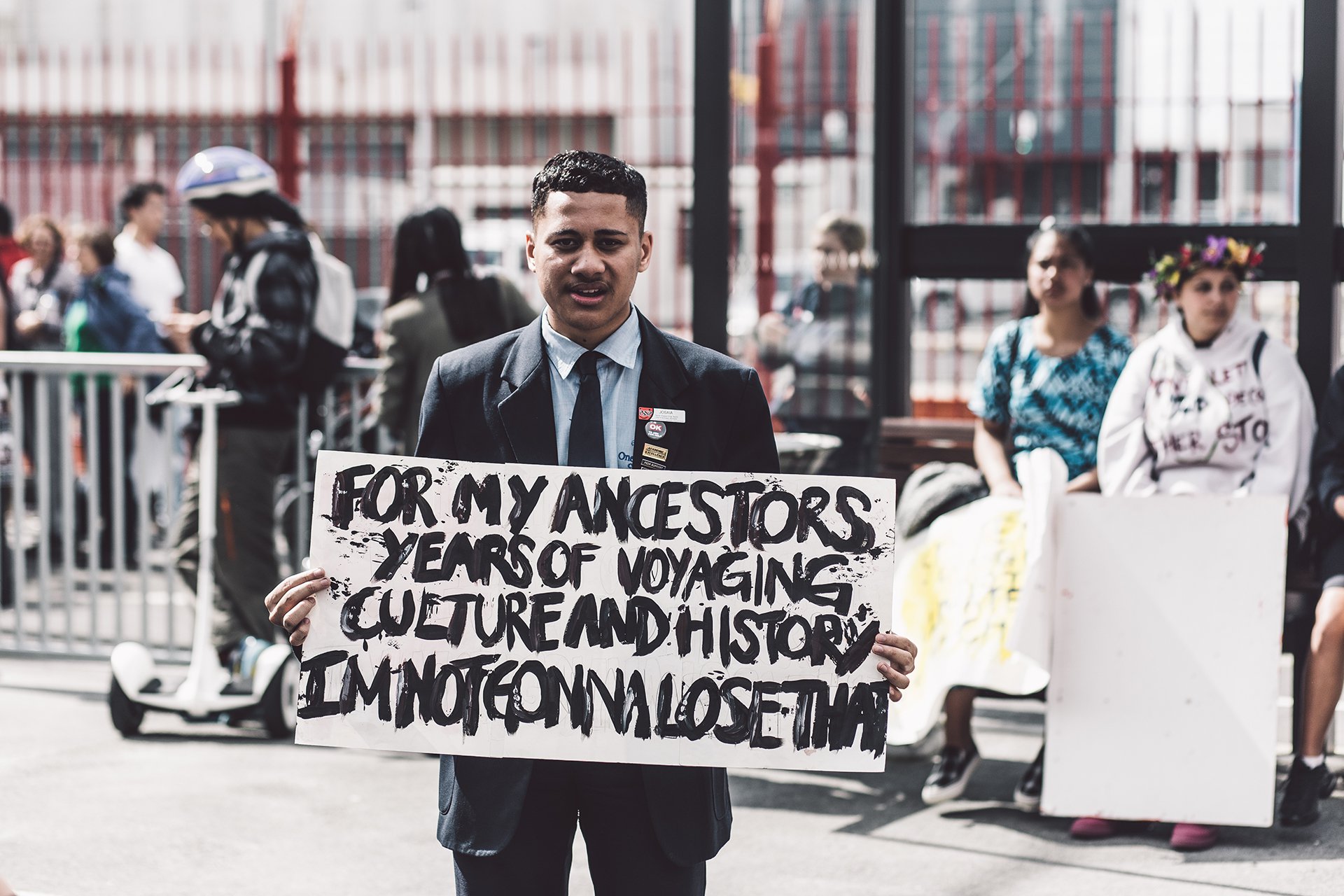
The first of all, get informed! You need to know why changes are required and why you are prospecting eventually. For us, it’s been several years of learning — understanding the environmental issues, how one industry can influence others, the interconnections of climate risks. And within that, understanding how changes in climate impact natural and socioeconomic systems and ultimately affect our wellbeing — what industries are responsible, how are we accountable and what changes are required. Throughout our daily lives, we can diversify pathways to meet climate goals target. Pushing for mass lifestyle changes inspires new social norms, aiming to influence industry — therefore building the foundation requires political reform. Collective action is critical to achieving success at scale and pressuring governments because changes in governmental policies are required establish meaningful change. Thus be vocal, keep showing your concern through climate strike, and support politicians passing laws that will achieve significant climate goals, reorienting moral compass.
We live on a unique and beautiful planet, for those who can see, diverse and once flourishing. Climate change isn’t a singular issue; it represents an existential threat that is at the intersection of nearly every issue, and it might not be our fault, but it is our problem. Refuse to stand by while our planet is sacked, demonstrate you care. Be the voice for these populations who are losing everything, their land, their history, their memories. What is happening to them is only the beginning; the future of the Pacific islands is also our future.

Everything we create is an effort to participate in a culture shift. All products featured are independently selected and curated by the authors, and we only feature items we use or would use ourselves that align with our values. As part of our business model, we do work with affiliates such as Amazon. As an Amazon Associate, we earn from qualifying purchases if you decide to purchase through our links. The price would be the same to you either way, but if you find value in our work, then these affiliate links are a way to support it. We only recommend brands, makers and products we use — that we support. Transparency is important to us, so if you have any questions, please reach out to us.



